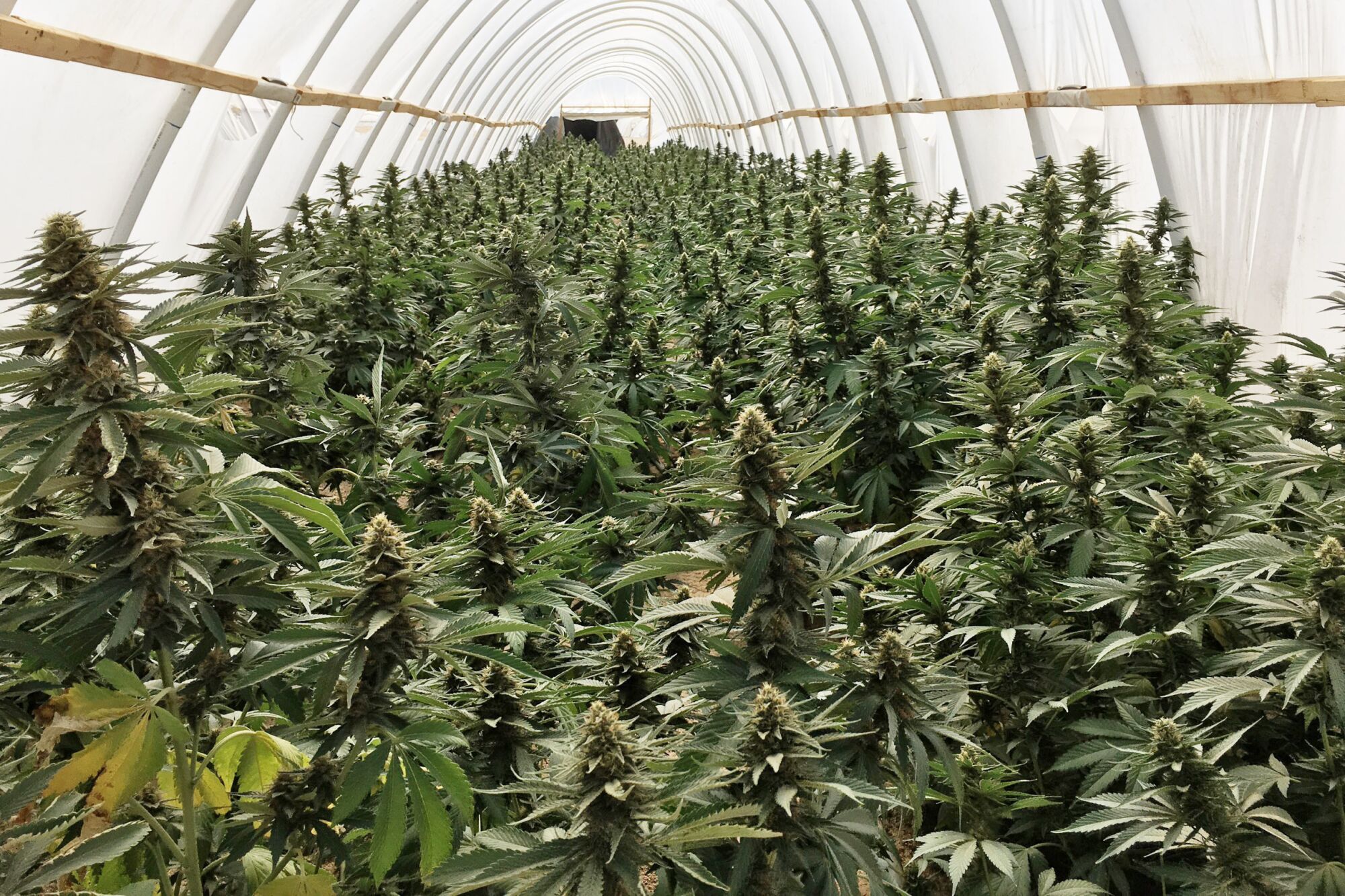California just seized nearly one million cannabis plants as part of an annual program dedicated to destroying black market weed grows.
During this year’s 13-week Campaign Against Marijuana Planting (CAMP) program, the state raided 449 illegal cannabis farms, seizing nearly 1 million live plants, over 200,000 pounds of illegally processed flower, and 184 weapons. Over 190,000 plants were seized from 18 sites in Mendocino county, nearly 160,000 from 77 sites in Riverside, and around 140,000 from 41 sites in San Bernardino. Grow sites in 23 more counties were raided as well.
The state Department of Justice created the annual CAMP program during the heyday of the War on Drugs in 1983. And although the Golden State kicked off adult-use cannabis sales in 2018, state officials chose to keep the CAMP program active in order to crack down on illicit grows. Since it began, the program has overseen the destruction of over 33 million weed plants. But despite these constant raids, California’s black market still isn’t going anywhere.
To help protect the struggling legal market from illicit competition, the state DOJ is upgrading the CAMP program into a year-round effort. Beginning this fall, CAMP will transition into the Eradication and Prevention of Illicit Cannabis (EPIC) task force. This new program, which partners state law enforcement officials with the federal Bureau of Land Management, Forest Service, and DEA, will focus on prosecuting cases involving the environmental, economic, and labor impacts of black market grows.
“California has the largest safe, legal, and regulated cannabis market in the world, but unfortunately illegal and unlicensed grows continue to proliferate,” said state Attorney General Rob Bonta in a statement. “The California Department of Justice’s CAMP task force works tirelessly each year to eradicate illegal grows and reclaim our public lands, but shutting down these grows is no longer enough. With the transition to EPIC, we’re taking the next step and building out our efforts to address the environmental and economic harms and labor exploitation associated with this underground market.”
In addition to challenging the state’s legal weed industry, illicit cannabis grows pose a serious environmental threat. Black market weed farmers often use federally-prohibited pesticides to cut costs, creating toxic runoff that poisons plants, wildlife, and waterways. During this year’s raids, CAMP teams removed 67,000 pounds of cultivation infrastructure from illegal grows, including dams and water siphoning systems. Clean-up crews also removed tons of toxic chemicals, including carbofuran, methyl parathion, aluminum phosphate, zinc phosphide, and illegal fertilizers.
“Illegal cultivation of marijuana on public lands continues to be a major problem for California. These illegal operations have a devastating impact on our environment and the health and safety of communities and public land users,” said Karen Mouritsen, California State Director for the Bureau of Land Management, in a press release. “The BLM is proud to be a part of CAMP’s federal, state and local law enforcement partnership and its mission to protect our public lands and maintain public safety.”
Although the state is ramping up its efforts to raid illegal growers, cannabis activists and stakeholders argue that law enforcement efforts alone won’t solve the state’s black market woes. California is notorious for levying some of the highest weed taxes in the country, which drive the cost of legal weed way higher than the illegal competition. The vast majority of California towns have also banned dispensaries from opening in their jurisdictions, making it hard for most people to even buy the legal stuff.
State officials have finally taken a few small steps toward resolving these issues. Earlier this year, Gov. Newsom signed a law to end the state cultivation tax. Some counties and cities suspended local weed taxes to help local pot businesses recover from wildfires and robberies. The state also upped its incentives for municipalities that opt-in to legal weed sales, and over two dozen towns may vote to do so next month.











